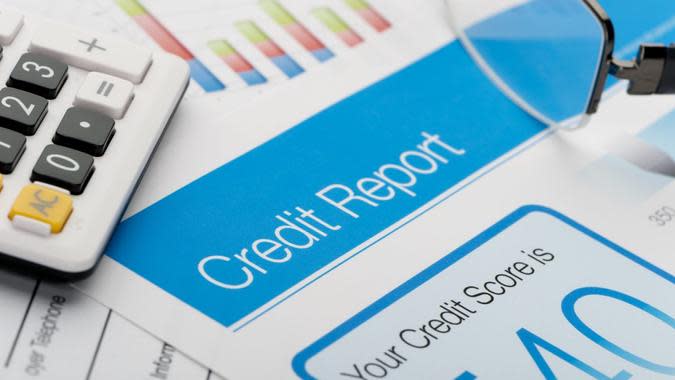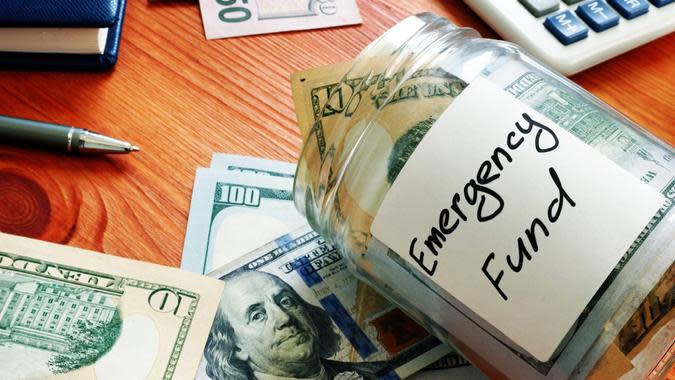10 Steps To Improve Your Finances in One Year

Financial security is at the top of many people’s wish list. Whether you’re in a job that doesn’t pay what you deserve, you’ve got too much debt or your spending habits outreach your income — now is always the right time to finally improve your money situation.
Read Next: 6 Reasons the Poor Stay Poor and Middle Class Doesn’t Become Wealthy
Try This: How To Get $340 Per Year in Cash Back on Gas and Other Things You Already Buy
Follow these ten expert tips to make it happen.

Consolidate Debt
Paying down debt should be a top priority for anyone trying to improve their finances in a year’s time, said John Halkins, a senior investment advisor at Retirement Expert. One strategy is to combine your debts with a debt consolidation loan.
“Managing fewer obligations at once can not only make it simpler to stay on top of your debt but depending on the terms of the debt consolidation loan, it could also result in interest cost savings. Reduce the total lifetime payments and you might be able to pay off the loan sooner. This is possible if you can pay less interest,” said Halkins.
Trending: Here’s the Salary Needed to Actually Take Home $100K in Every State
For You: Shark Tank’ Star Kevin O’Leary: My Morning Habit That Keeps Me From ‘Losing Money 100% of the Time’

Prioritize Your Car Loan
Another strategy to tackle your debt in a year is to pay down debts you have the best chance of paying off, beginning with a car loan, according to Joel Ohman, CEO of InsuranceProviders.com.
“Work toward paying off your car loan. The less you still owe on your vehicle, the easier you’ll be able to pay it off. But once you eliminate that source of debt, resist the temptation to take on another debt. Instead, put what was once your vehicle payment toward other high-interest debt,” he said.
Find Out: How Much Does the Average Middle-Class Person Have in Savings?

Improve Your Credit Score
A good credit score is key to making it possible to purchase things like homes and automobiles, or even renting an apartment at a reduced rate. If your score isn’t great, take on the task of improving it this year.
According to Halkins, “The most crucial action you can do to improve your credit score is to pay all of your obligations on time and in full. If you’ve been keeping track of your spending, you’ll be able to identify simple expenses you may eliminate to keep your expenditures within your budget.”

Educate Yourself
A great way to get ahead financially, according to Garett Polanco, chief investment officer of Independent Equity, is to “consider educating yourself further about personal finance and investing.”
He said, “There are many resources available, including books, articles and online courses that can help you learn about budgeting, saving, investing and other financial topics. The more you know about personal finance, the better equipped you will be to make informed financial decisions.”

Cut Unnecessary Expenses
Take a closer look at your spending and try to identify some costs you can trim. For example, you may have a streaming service you’re not longer watching or a gym membership you don’t use.
You may also be able to lower your grocery bill by planning your meals more carefully and sticking to a list, which can prevent you from making impulse buys or purchasing more food than you need.
Check Out: I’m a Self-Made Millionaire: 5 Stocks You Shouldn’t Sell

Downsize
Another way to save money is to look beyond the small expenses to the big ones.
Dinesh Pandian, a finance expert and co-founder of Lenders.fi, said, “Consider downsizing your apartment or house if it’s too expensive and you’re not using the extra space. This will allow you to save money on rent or mortgage payments and still have a place of your own.”

Buy Generic
Pandian also recommended that you can save money quickly through conscious shopping. “Don’t buy brand-name items if they’re similar in quality to their generic counterparts; sometimes these are just marketing ploys that don’t actually offer any benefits.”

Set Yearly, Quarterly and Monthly Goals
Don’t settle for just a monthly budget. First, decide how much you wish to have accumulated by the following year right away. Then set monthly goals, and then quarterly ones.
Up Next: 6 Money Moves To Make When Your 401(k) Hits $1 Million

Keep Track of Your Progress
Don’t just assume you’ll meet your goals. Jenson urged that you keep track in a log.
“Maintaining your financial goal, particularly at the beginning, might be challenging. Utilizing online financial software might help you better visualize your progress and remaining funds. It brings all the accounts together so you can assess your overall financial situation and determine whether you are meeting those monthly expenses.”

Build an Emergency Fund
Emergencies surprise us with their timing and unexpected costs. Building up an emergency fund of approximately 3 to 6 months’ of expenses is a way to stay ahead of these events — and not get caught financially off guard.
Vida Jatulis, CFP, financial planner with MainStreet Financial Planning recommended opening a high yield savings account to earn interest while you save.
More From GOBankingRates
This article originally appeared on GOBankingRates.com: 10 Steps To Improve Your Finances in One Year
